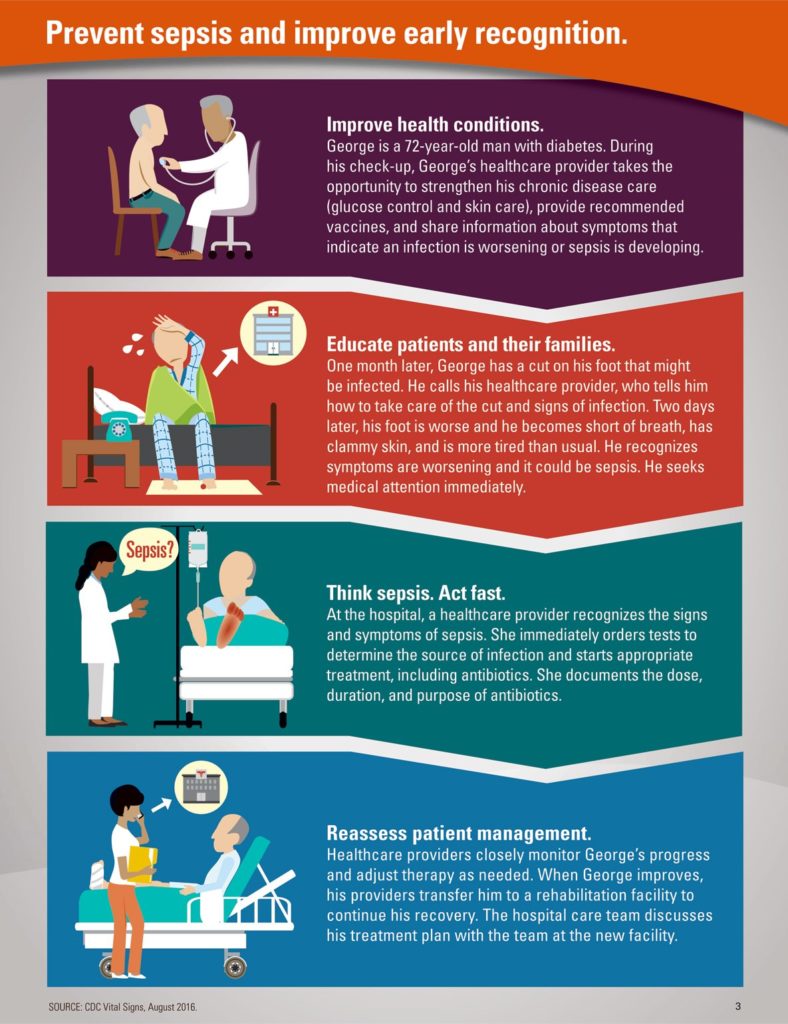Sepsis Awareness 8: Prevention

The DFW Hospital Council (DFWHC) Foundation has been coordinating the Sepsis Strike Force over the past five years. Led by Patti Taylor, the DFWHC Foundation’s director of quality and patient safety services, the group is made up of representatives from hospitals across North Texas inspired by the goal to create awareness on the dangers of sepsis in our community. Over the coming months leading to Sepsis Awareness Month in September, the Sepsis Strike Force will post blogs and informational graphics across social media to support their 2021 goal of raising community awareness.
How can you help to prevent sepsis in your community? Here’s a few tips:
• Get vaccinated against flu and any potential infections;
• Prevent infections by cleaning wounds and practicing good hygiene.
If you have an infection, look for signs like:
• Fever and chills;
• Extreme weakness, dizziness, lethargy or confusion;
• Signs of compromised organ function such as rapid heart rate and low urine output;
• Rash;
• Excessive thirst;
• Loss of appetite;
• Skin or wounds that become red, tender and swollen.
How is Sepsis Treated?
Individuals with sepsis are usually treated in the hospital and typically in the Intensive Care Unit. Doctors treat it with antibiotics as soon as possible. Many patients receive oxygen and IV fluids to maintain normal blood oxygen levels and blood pressure. Other types of treatment, such as assisting breathing with a machine or kidney dialysis may be necessary. Sometimes surgery is required to remove tissue damaged by the infection.
Who Can Get Sepsis?
Anyone can get sepsis, but the risk is higher in:
• People with weakened immune systems;
• Babies and very young children;
• Elderly people;
• People with chronic illnesses such as diabetes, AIDS and kidney or liver disease;
• Someone suffering from a severe burn or wound.
Are There Any Long-Term Side Effects of Sepsis?
Many people who have sepsis recover completely, and their lives return to normal. But some may experience permanent organ damage. For example, if someone already has kidney problems, sepsis can lead to kidney failure that requires lifelong dialysis.
If you suspect sepsis or observe a combination of these symptoms, see your medical professional immediately, CALL 911, or go to a hospital with an advocate and say, “I AM CONCERNED ABOUT SEPSIS.”

